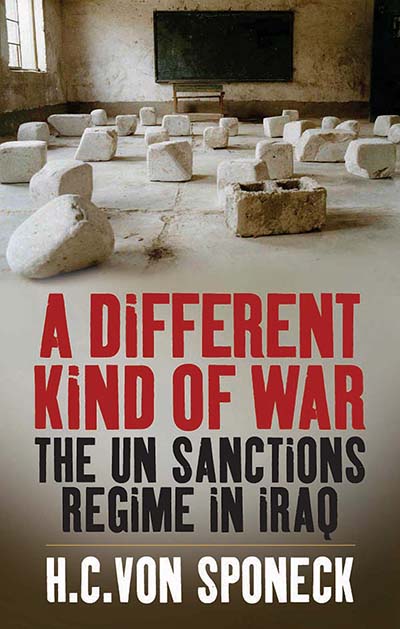»»
![]() Flyer
(English)
Flyer
(English)
»»
![]() Flyer (German)
Flyer (German)
Some publications of the speakers
James A. Paul
Of Foxes and Chickens
- Oligarchy and Global Power in the UN Security Council,
Rosa-Luxemburg-Stiftung, August 2017
Syria Unmasked, James Paul im Video, Center for Global Justice, 4.3.2016
War and Occupation in Iraq, / Krieg und Besatzung im Irak, Global Policy Forum, 2005
With Katarina Wahlberg: A New Era of World Hunger? – The Global Food Crisis Analyzed
Hans v. Sponeck
Richard Falk, Denis Halliday, Hans-Christof von Sponeck,
How the
United Nations should respond in the age of global dissent
Three former UN insiders on the future of the world's most ambitious
organisation.
Stop Anglo-American Dominance in UN! – Former Assistant Secretary-General
Sputnik, 28.09.2015
‘It’s
tragic US continues series of experiments in Syria’ - ex-UN Assistant
Sec-Gen
Interview RT, 25 Apr, 2016
Hans Christof von Sponeck, Miguel d'Escoto Brockmann and Denis J
Halliday:
In the Middle East, the prize of peace is now there for the taking,
Guardian, 17 Oct 2013
A Different Kind of War: The UN Sanctions Regime in Iraq, Berghahn Books, New York & Oxford, September 2006

Of Foxes and
Chickens
Oligarchy and Global
Power in the UN Security Council
Discussion with Hans-Christof
von Sponeck, former UN Assistant Secretary-General
and James A. Paul, long-time Director of the Global
Policy Forum
 20.00 Uhr
| DAI
20.00 Uhr
| DAI
Sofienstraße 12, Heidelberg
Organizer: Friedensbündnis Heidelberg and Deutsch-Amerikanisches Institut (DAI)
Whether it be the war in Iraq, the NATO wars against Yugoslavia and Libya,
the war in Syria or the current conflict in Venezuela - the inability of the
UN Security Council to prevent wars and resolve conflicts peacefully leaves
many in doubt about the organisation.
When after the Second World War the United Nations was founded by the
victorious Allies to secure peace, Roosevelt, Churchill and Stalin placed a
Security Council at the top -- a body dominated by five permanent members, a
“trusteeship of the strong”.
These powerful nations had to shoulder the burden of peacekeeping and to
ensure that wars of aggression would never happen again. The UN Charter
declared the prohibition of the use of military force and of the
interference in the affairs of other states the central principles.
The reality is different. Even though the UN Security Council has achieved
undeniable success-es, it is shaped, often paralyzed and not infrequently
abused by the classic interest politics of the great powers. It is dominated
by the USA, most of the time supported by the two Western European permanent
members, France and Great Britain. Since the end of the Cold War, the UN
Security Council has drastically increased its activity and supremacy.
But whether it be armament, nuclear weapons, unilateral economic blockades or military inter-ventions - often veto powers themselves are involved, where United Nations initiatives are ur-gently needed to overcome dangerous crises.
On the other hand, from a historical perspective, the UN and especially the Security Council seem to be an impressive progress, measured against the conditions before 1945 and the work of the League of Nations. But are they really “the best we can get”, as it is often said, in view of the power relations?
Hans v. Sponeck will begin his talk speaking about his experiences with the Security Council and outlining some initial ideas for urgently needed reforms.
 James
Paul will then discuss in more detail the working methods of the
Security Council and the steep hierarchy that prevails in the Council. On
the basis of his reform efforts to date, he will discuss the directions in
which the Council could develop in the future and the opportuni-ties for
democratic change that would be needed to enable the UN to really work for
peace.
James
Paul will then discuss in more detail the working methods of the
Security Council and the steep hierarchy that prevails in the Council. On
the basis of his reform efforts to date, he will discuss the directions in
which the Council could develop in the future and the opportuni-ties for
democratic change that would be needed to enable the UN to really work for
peace.

Hans-Christof von Sponeck worked for the United Nations at various
locations from 1968, including as head of the UN offices in Pakistan and
India. In 1998, as UN Coordinator and Assistant Secretary-General, he took
responsibility for the humanitarian programme "Oil for Food" in Iraq. He
resigned in February 2000 in protest against the UN Security Council's
sanctions policy.

James (Jim) Paul is author of the recent
book
Of Foxes and Chickens, a critical study
of the UN Security Council, based on
eighteen years of close scrutiny of the
Council as Executive Director of Global
Policy Forum in New York and as founding
Chair of the NGO Working Group on the
Security Council.
Jim has spent most of his career in the NGO
sector, working on peace, justice and human
rights projects. Prior to GPF, he worked for
an extended period for the Middle East
Research and Information Project (MERIP) and
served finally as its Executive Director.
In addition to Foxes and Chickens, Jim is
also author of War and Occupation in Iraq,
Syria Unmasked and Humanity Comes of Age. He
has written more than a hundred articles and
policy papers. For more than a decade, he
served as an editor of the Oxford Companion
to Politics of the World. He was Co-Chair of
the NGO Working Group on Iraq at the UN. He
was also convener of the NGO Working Group
on Food & Hunger. He has given many lectures
and media interviews and has previously
spoken in Germany at events in Hamburg,
Hanover, Bonn, Cologne, Pottsdam and Berlin.
His Ph.D. is from New York University and he
also has degrees from Harvard and Oxford.
Ticket Prices (plus fees)
Regular price 8 €
Reduced price 5 €
Member price 4 €
»» Buy Tickets